The once prosperous capital of the 700-year-old Lanna Kingdom in the northern part of Thailand, Chiang Mai is an ancient city with a perfect blend of the laid-back north, incredible mountains, and an array of historically rich architecture and activities waiting for you to explore.
With so many Chiang Mai travel guides out there, here is my take, as a Thai and thanks to my local friends in Chiang Mai, on the absolute best things to do in Chiang Mai. Without further ado, let's begin with an overview of all the things you can do around Chiang Mai city center for solo travelers.

- Chiang Mai Itinerary Map
- Where to Stay in Chiang Mai?
-
21 Best Things to Do in Chiang Mai
- Admire the Detail of Wat Lok Moli
- Relax at Wat Chiang Man
- Be Blown Away by the Scale of Wat Chedi Luang
- Visit Wat Phra Singh
- Walk Around Wat Suan Dok
- Visit Wat Umong
- Hang Out at Baan Kang Wat
- Relax by Ang Kaew Reservoir
- Explore Pha Lat Temple
- Enjoy the Evening at Wat Phra That Doi Suthep
- Visit Wat Sri Suphon
- Explore Wiang Kum Kam
- Visit Khun Chang Kien During Thai Sakura Blooming Season
- Be Amazed By the Grand Wat Ban Den Temple
- Stroll Around One Nimman's Night Market
- Visit Jing Jai Farmers Market in the Morning
- Enjoy a nice sunset on the rooftop of Maya Mall
- Attend the Yi Peng Festival during Loy Krathong
- Learn About the History of Lanna at the National Museums
- Stroll Around the Sunday Walking Streets
- Go on day trips and explore Greater Chiang Mai
- More Chiang Mai Activities
-
What to Eat and Drink in Chiang Mai?
- Taste the Best Khao Soi in Chiang Mai at Khao Soi Lung Prakit Kaat Gorm
- Try the Sukiyaki dish at the Famous Chang Phueak Suki
- Sip a Morning Coffee by the River Ping at The Baristro
- Listen to Jazz with a Beer at The North Gate Jazz Bar
- Have Lunch at Han Teung Chiang Mai Restaurant
- Eat Street Food at The Chiangmai Complex Night Market
- When to Visit Chiang Mai?
- How to Get to Chiang Mai?
- How to Get from Chiang Mai Bus Terminal to Your Accommodation?
- How to Get Around Chiang Mai?
- How Many Days to Spend in Chiang Mai?
- How Much Money Do I Need For Chiang Mai?
- Is it Safe in Chiang Mai?
- Which tourist SIM card is best for Chiang Mai?
- What to Pack for Chiang Mai?
- Further Reading for Northern Thailand
Chiang Mai Itinerary Map
21 Best Things to Do in Chiang Mai
1. Admire the Detail of Wat Lok Moli
The first temple you will likely stumble upon on your first day in Chiang Mai is Wat Lok Moli, one of the oldest standing temples in the city, built in the 14th Century. The temple is located just outside the city's wall to the north.
The temple is known for its massive chedi that dominates the area. It was built in the 16th Century and is still in considerably great condition compared to what you would expect from a structure this old.
In front of the chedi, you will also find a Lanna-style temple built in teak wood and adorned with traditional Lanna-style wood carvings. This temple was actually built recently, in 2003, during the process of restoring and expanding the temple.
- Your Space Hotel Prasingh (Budget)
- The Wing Boutique Hotel (Mid-Range) 👍 Top Pick
- Aksara Heritage (High-End)
- 3 Experiences: Doi Inthanon Tour, Elephant Sanctuary, Trekking Trail (10 to 12 hours) 🏅 Top Pick
- Best Seller! Doi Inthanon National Park, Waterfall & Royal Project - Chiang Mai (8 to 9 hours)
- Half Day Thai Cooking Course at Farm (Chiang Mai) (6 hours)
Within the beautiful teak wood temple, you will find a large Buddha image seated on the opposite side of the entrance. The pillars and walls are painted in a dark crimson color, giving it its unique Lanna-style atmosphere that you cannot find in central Thailand.
The temple is open from 6 AM to 5 PM every day, and you do not have to pay to enter. You can simply ride your motorbike into the temple and park it on your left, right when you entered the temple courtyard.
Where to Stay in Chiang Mai?
2. Relax at Wat Chiang Man
Located not too far from Wat Lok Moli, within the city's wall of Chiang Mai, you will find another impressive temple called Wat Chiang Man, the oldest temple in Chiang Mai that dates all the way back to 1296, the time of the founding of the city.
King Mengrai, the founder of the Lanna Kingdom, decided to build his city on the spot and constructed Wat Chiang Man as the first temple in the city. The temple comprised an old, large chedi and an assembly hall that holds the oldest Buddha image in Chiang Mai.
The chedi of Wat Chiang Man is one of the oldest remaining structures of the temple, and it is called Chang Lom Chedi, which translates to "elephants surrounding the Chedi."
The chedi is built in a beautiful mixture of Lanna style, as evidenced by the golden paint covering the top part of the chedi, and the Singhalese style originated from Sri Lanka, which can be seen in the design of the bottom part of the chedi.
The temple is open from 6 AM until 5 PM, and admission is free, again. God, I love it when attractions like these are free for foreigners. Some of the entrance fees for foreigners that I saw in Sukhothai are a little overpriced, in my opinion.
3. Be Blown Away by the Scale of Wat Chedi Luang
Just a little north from Wat Chiang Man, you will find one of the most iconic landmarks of Chiang Mai: the massive remaining chedi of Wat Chedi Luang, also known as the "Temple of the Great Stupa".
I've seen photos of Wat Chedi Luang before I visited Chiang Mai, but the real scale of the place, as I stood by the foot of the chedi, blew my mind away. No wonder why they called it the Great Stupa.
It took almost a decade to complete this chedi. The construction started in 1391 and was completed in 1475, taking almost 85 years to finish. Back when it was intact, it is said that the chedi reached up to 85 meters in height and 44 meters in width, making it the largest ancient structure in the entire city.
Wat Chedi Luang is not just comprised of the great stupa; you will also find two temples within the courtyard. One is a huge and impressive building with a golden facade containing a large Buddha image called Phra Chao Attarot, and another is a smaller temple nearby, which is as pretty as the large one.
Within the temple, I saw a dedicated area where you can start chatting with a monk. If you are curious about Buddhism and their lives, this is a good place to start talking to them and learn more about Buddhism. The temple opens from 6 AM to 6 PM, and it is free to enter.
Tours & Tickets You Might Like
If you are looking for more activities to do here, be sure to check out some of the available tours and day trips:
- 3 Experiences: Doi Inthanon Tour, Elephant Sanctuary, Trekking Trail (10 to 12 hours) 🏅 Top Pick
- Best Seller! Doi Inthanon National Park, Waterfall & Royal Project - Chiang Mai (8 to 9 hours)
- Half Day Thai Cooking Course at Farm (Chiang Mai) (6 hours)
4. Visit Wat Phra Singh (Gold Temple)
The last temple you will visit within the vicinity of the old ancient wall of Chiang Mai is Wat Phra Singh, a temple built in the 14th Century that proudly displays the stunning classic Lanna architectural style with its blindingly gold chedi and several teak wood temples, all within the temple's courtyard.
One of the most prominent architectures is the huge golden chedi that reflects sunlight in all directions. It is so blindingly beautiful that you have no choice but to stare at it until your eyes are sore.
The temple is composed of the golden chedi, the main prayer hall, the Lai Kham prayer hall that contains the Phra Singh Buddha image from which the temple's name was derived, and the Luang prayer hall that houses the revered Phra Chao Thong Tip Buddha image.
The temple opens from 6 AM to 8 PM, and you will have to pay 50 THB to get into the temple grounds. Since there is a ton to see in this temple, I think the 50 THB price tag is definitely worth it.
5. Walk Around Wat Suan Dok
After spending the morning exploring all the attractions within Chiang Mai's old wall, it is time to go out with your motorbike and see what the rest of Chiang Mai has to offer. On our way towards the mountain, we should stop at Wat Suan Dok, a 14th-century temple known for its numerous beautiful white pagodas scattered throughout the temple grounds.
Within the temple grounds, you will find the 48-meter-high golden Sri Lankan-style chedi that contains the relic of Buddha and a large number of white pagodas containing the ashes of several generations of Chiang Mai's royal family.
It is like a Christian graveyard, so please refrain from taking selfies and fun photos within Wat Suan Dok, and be respectful when walking around all the white pagodas. The temple is open from 6 AM to 5 PM, and the entrance fee is free.
6. Visit Wat Umong
After Wat Suan Dok, continue west along the road and maybe stop by Han Teung Chiang Mai for lunch before continuing to our next temple, which is probably the most unique temple you will find in Chiang Mai.
Wat Umong, which translates to the Tunnel temple, is, you guessed it, a temple built inside a system of tunnels deep within a forest on the foothill of Doi Suthep, the looming mountain you can see towering over Chiang Mai.
According to legends, Wat Umong was founded in the 13th Century under King Mengrai's reign, who is the founder of the Lanna Kingdom. As the city of Chiang Mai grew, monks found it harder and harder to meditate. So, the king decided to pick a new location for a temple and dug a series of tunnels to house shrines and Buddha images for the monks to meditate peacefully.
At Wat Umong, you will find three entrances to a connected tunnel containing several Buddha images for devotees to pay their respect to the Buddha. Above the mound where the tunnel is dug, you will find a large bell-shaped chedi constructed in a Lanna architectural style that has recently been restored.
The temple ground opens from 6 AM to 5 PM, and the entrance is free of charge. Even though the temple is a little far from the city center, I think you will appreciate the uniqueness and solitude of the surroundings once you are there.
7. Hang Out at Baan Kang Wat
Chiang Mai is a city that is always changing, and when I went back in 2025, I discovered a new and awesome art village called Baan Kang Wat, which translates to "The Houses Beside the Temple". It is exactly that: a collection of wooden houses right by Wat Ram Poeng on the foothills of Doi Suthep that have been converted into an art village where you will find all kinds of art and craft shops. You can also join activities like painting, creating your own notebook, and more.
Like much of Chiang Mai, the whole village is covered in lush green trees that provide plenty of shade for you to walk around comfortably. In the middle, you will find an open-air theater area where you can sit and relax with a cup of coffee or lunch from nearby cafes and restaurants.
Of course, this is Chiang Mai, so you can expect to find all kinds of food and drinks here, from the classic dish of Khao Soi to a cup of coffee made from locally sourced beans.
The main highlight of this art village is the variety of art and craft shops. There are workshops you can join scattered throughout the village, with the most popular ones being the painting workshop and the notebook-making workshop. These are just some of the fun activities you can participate in while you are here. You will find plenty more as you explore.
I found a lovely little art shop right next to the entrance with some really cool artworks by a local artist, and I grabbed a few funny postcard-sized pieces for about 70 THB. It is really lively here during the day, especially during the winter period from November to January, when the sun is out and the weather is perfect.
If you are looking for a cool and hip place to hang out with a chill vibe or want to shop for some local artsy souvenirs, be sure to check out Baan Kang Wat. The village is open from 10 AM to 6 PM daily except Mondays. You can visit it together with Wat Umong, which is not far away.
8. Relax by Ang Kaew Reservoir
After a whole day of exploring temples, it is time to take a break and enjoy the nature of Chiang Mai. At the foothill of Doi Suthep, within the vicinity of Chiang Mai University, you will find Ang Kaew Reservoir, a massive body of water surrounded by beautiful vegetation and forest.
This is the perfect place to lose yourself in when you find Chiang Mai to be a little too loud and overwhelming. After riding a motorbike on the road for several hours that day, I appreciated that a place like this exists for me to stroll around and relax away from the bustling city of Chiang Mai.
9. Explore Pha Lat Temple
As you may have guessed, we are moving closer and closer to the top of Doi Suthep, where we will be spending our sunset time at Wat Phra That Doi Suthep. But before we do that, you will have to take your motorcycle up to the top.
Do not worry. The road is in great condition throughout, and it is wide and safe enough for you to take your scooter up to Wat Doi Suthep. But before we arrive at the top, be sure to stop by Pha Lat Temple first.
Wat Pha Rat is a lesser-known temple located along the way from the base of Doi Suthep to Wat Pra That Doi Suthep temple. Nestled in lush green forest, the temple serves as a great place for monks and people to meditate in solitude away from the crowdedness of most community temples in the city.
Within the temples, you will find many sculptures of mythical creatures that can be found everywhere in Thailand, such as the nagas, the Singhs (lions), and the half-man version of both mythical creatures.
10. Enjoy the Evening at Wat Phra That Doi Suthep
After spending your time at Pha Lat Temple, continue along the winding road up to the top of Doi Suthep mountain and you will find Wat Phra That Doi Suthep, one of the most important temples in Northern Thailand, waiting for you.
Before you get to the temple, you will first have to ascend the 300+ steep steps that go up to the temple from the parking lot. Once you arrive at the top, you will have to continue onward into the temple's grounds where you will find a stunning golden chedi surrounded by 3 halls housing several Buddha images.
Legends have it that once, there was a monk from Sukhothai who possessed the relic of Buddha and came to Lanna to offer it to the king. During the process, the relic split into two pieces. One is currently enshrined at Wat Suan Dok, and another is thought to have been the reason why they built Wat Phra That Doi Suthep on the spot, to enshrine the rest of the relic.
Apparently, in order to determine the location of this new temple, they decided to put the relic on a white elephant and set it free through the forest. The elephant somehow ended up at the top of Doi Suthep mountain before it collapsed and died, and that is why the temple is built there in the 14th century.
The temple is open from 5 AM to 8 PM, making it the perfect place to experience either the sunrise or the sunset over Chiang Mai. I was there during the sunset, and the light was perfect for photography. The entry fee for foreigners is 30 THB.
11. Visit Wat Sri Suphon
Now that you've seen all the white and gold pagodas at Wat Suan Dok and Wat Phra Singh temples, how about we visit an all-silver temple, Wat Sri Suphon? Wat Sri Suphon, also known as the Silver Temple, is located just south of the walled old city of Chiang Mai.
Wat Sri Suphon is known for, you guessed it, the temple design that is covered in handcrafted silver decors. From the outside wall to every corner of the temple's ordination hall, everything is covered in silver from head to toe.
The temple was built in the 16th century in the middle of the old silversmith district, and over the years, the silversmiths continued to repair and renovate the temple with silver. It was only in 2008 when the temple was finally entirely covered with silver.
It is one of the most unique temples in Chiang Mai and a must-visit if you want to see something different. Wat Sri Suphon's opening hours are between 6 AM and 9 PM. The temple gets lit up when the sun is down, so be sure to drop by there at night.
12. Explore Wiang Kum Kam
Only recently discovered, Wiang Kum Kam is an ancient settlement and an active archaeological site that was buried for centuries until it was rediscovered by the locals.
There are a total of 42 monuments that have been excavated at Wiang Kum Kam, and this ancient city covers several square kilometers. You will need your own vehicle to explore the area.
Don't worry, we will not be visiting all 42 monuments. Some monuments are quite small and may not be worth visiting. Your journey in Wiang Kum Kam will begin at Wiang Kum Kam Information Center where you will get a map and access to the museum, and it is free to enter.
- Wat Chedi Liam is an active temple where you will see the most beautiful monument of Wang Kum Kam, the Haripunchai-era pagoda with all its features intact.
- Wat Ku Padom temple, where you can still see the base of the ancient site.
- Wat Pupia is where you can see the well-preserved brick pagoda in its entirety.
- Wat E-Kang is a place where you can still see the base and most of its octagonal designed pagoda intact.
- Wat That Kaow is where you will find the base of an ancient ordination hall and the bases of the columns.
- Wat Nan Chang is another big temple where you can still see the base of the ordination hall.
- Wat Chang Kam, is a pagoda built on top of elephant statues, similar to the one in Sukhothai.
It should take you around 30 minutes to visit all of these ruins. Wiang Kum Kam's opening hours are between 8 AM and 5 PM, and there is no admission fee whatsoever. If you come with your own vehicle, you can just drive in and explore these ruins at your own leisure.
13. Visit Khun Chang Kien During Thai Sakura Blooming Season
One of the popular places the Thai like to visit during the blooming season (December - January) is Khun Chang Kien, a small mountain village up on Doi Pui mountain just behind Doi Suthep, where you will find these beautiful pink-colored Himalayan cherry blossoms blooming all over the town.
Within Khun Chang Kien, you will also be able to buy souvenirs and fresh fruits like strawberries at an inexpensive price in the market. Since the flower only blooms in late December and January, Khun Chang Kien is only worth visiting if you are there during that time.
Be careful with your timing if you want to visit Khun Chang Kien. The place is extremely popular among local tourists, and the 7 km road into town is extremely narrow and can only accommodate the size of one car and a half.
If you visit as early as 8 AM, then you won't have to share the road with many cars. However, if you visit after that, the traffic will be horrendous, as you will have to share the narrow road with other cars both going up and coming down. You could be stuck on the road for hours.
From Chiang Mai, you just have to drive to Doi Suthep Temple and continue until you arrive in Khun Chang Kien, which should take another 30 minutes (a narrow, mountainous road). When you drive back down, you will see why it is important that you visit the place as early as possible.
I do not recommend visiting Khun Chang Kien offseason as there isn't a lot to do, except for seeing these rare flowers bloom. The Thais dubbed it the Thai Sakura.
14. Be Amazed By the Grand Wat Ban Den Temple
Wat Ban Den Temple is one of the grandest temples I have ever seen in Thailand. The temple is full of over-the-top style architectures, from the pink and blue colored naga statues (that's a first!) to the black pagoda with a golden top.
All the architectures you find here are recently built with extremely intricate details. From the scales of the colorful mythical creature statues to the murals carved out of a temple wall, you can see that a lot of money and hard work are spent building this temple.
Although the temple may look new from the outside, it is actually 100 years old. However, due to the endorsement by the 10th King of Thailand, followed by the influx of donations from several well-known local celebrities, the temple is rapidly expanding with more over-the-top architecture.
In fact, when I was there recently, they were constructing two more structures nearby. It is already a huge temple that took me almost an hour to see them all, and they are still expanding it.
If you are bored of seeing ancient architecture in Chiang Mai and would like to see some truly over-the-top modern Buddhist architecture, this is the place to be. Wat Ban Den Temple's opening hours are between 7 AM - 6 PM, and there is no admission fee.
15. Stroll Around One Nimman's Night Market
Now, we go back to the city of Chiang Mai. If you are looking for a place to shop and eat out on the weekend, the One Nimman's Night Market is a great place to be.
Every Friday, Saturday, and Sunday, the open-air shopping mall, One Nimman, turns its courtyard into a night market. You will be able to find many street food carts and cheap handicraft shops to indulge yourself in.
One Nimman's Night Market runs from 6 PM - 10 PM. The food is a little pricier than the usual walking street prices, but the vibe and atmosphere make up for it. It is a great place to stroll around and hang out in the evening.
16. Visit Jing Jai Farmers Market in the Morning
Another weekend market, but this time, it is in the morning, is the Jing Jai Farmers Market where you can buy locally-produced organic food and handicrafts that are similar to those in hipster markets in Europe.
Jing Jai Farmers Market is one of my favorite markets in Chiang Mai. It is a great place to grab a local breakfast and to buy all kinds of local products at an inexpensive price.
One of my favorite cafes to visit here is the Chu Jai Cafe, where a Karen guy who owns his own coffee farm in the mountains comes every weekend. He sits at his usual spot with his makeshift bamboo yoke and starts making drip coffee for free.
He uses the concept of pay-it-forward, where he will make your coffee and you can pay whatever you want. It is one of the coolest ideas, and he has become quite a popular face at the Jing Jai Market.
Locals and tourists from everywhere sit on these tiny plastic chairs and simply hang out with the guy. It's the cool vibe you don't get to see in Thailand. You certainly won't see a pay-it-forward café like this in Bangkok!
Jing Jai Market's opening hours are from 6 AM - 1 PM only on Saturday and Sunday. The parking lot can be very hard to find around 8 AM, so if you wish to enjoy the Farmers Market at your own leisure, I recommend visiting the market earlier than 8 AM.
17. Enjoy a nice sunset on the rooftop of Maya Mall
If you are looking for a place to watch the sunset in the city that is free, then the rooftop of Maya Mall is a great place to be. Maya's large rooftop area opens around 5 PM, and from the rooftop, you will be able to see the city from above as well as Doi Suthep and other mountains around Chiang Mai.
The rooftop has plenty of seating areas, making it popular among young people who often come here to enjoy the final hour of the day with their friends. Plus, it is free!
18. Attend the Yi Peng Festival during Loy Krathong
If you are there during the Loy Krathong period, which is around the end of October and the beginning of November (for the exact date, be sure to check for updates here), you will be able to attend the famous floating lantern event, the Yi Peng Festival in Chiang Mai.
Unfortunately, if you want to see the floating lanterns, you will have to attend one of the many privately organized events that often cost over $100 to attend. These events are located outside of the city due to the fact that, in recent years, the remnants of these floating lanterns have caused quite a headache for the locals, leading to a ban on them.
Fortunately, the Yi Peng Festival is so much more than just the photogenic floating lanterns. Within the city, you will find parades, local dance performances, and plenty of beautiful photo opportunities that are not harmful to the local community, and they are free to attend.
The local event often takes place in front of the Three Kings Monument, where they will close off the road and bring out the volunteers to perform the local dance. You will also get to see several performances by local universities' students, which often consist of traditional folk dances, music, and parades.
There's so much happening at this event that it can easily occupy your hours to see them all. The local Yi Peng event usually starts at 6 PM and goes on until 11 PM.
You can also go to the rivers and float your Krathong out into the water, which is how Loy Krathong is usually celebrated all over the country. However, in the north, they also release floating lanterns.
All in all, if you are able to align your visit with the Yi Peng Festival, you are guaranteed to have an incredible time in Chiang Mai. And if you decide to attend the local festival, as I did, instead of those overpriced organized tours, you are in for a treat!
19. Learn About the History of Lanna at the National Museums
There are 3 museums you can visit in the city center, all of which are well worth your attention. The first one I would recommend you visit is the Lanna Folklife Museum, which is a museum dedicated to the beautiful work of art and folklore of the ancient kingdom of Lanna. Wondering what the colorful lanterns you see all over Chiang Mai and the north are all about? You will find the answer right here.
For a deeper dive into the city's diverse culture, another museum located just across the street that I recommend you visit is the Chiang Mai City Arts & Cultural Center, which will give you an overview of the city's history from its founding to the modern day, as well as the cultures that developed during those times.
The exhibition is very well laid out, introducing the culture to all the mixed people living in the area. If you are planning to explore the hills of Northern Thailand further, for example, if you plan to do the Mae Hong Son Loop, the information you will find here will allow you to see just how diverse and different the hill tribes are. It's a great piece of information to acquire before you embark on the journey into the hinterlands.
Last but not least, there's the Chiang Mai Historical Centre where you will get to learn about the history of Chiang Mai city and the notable figures that made Chiang Mai what it is today. There are also some parts of the old wall's foundation that can be seen inside the museum.
All three of these museums are open from 8:30 AM to 5 PM every day except Monday. For each individual museum, the entry ticket is 90 THB for foreigners and 20 THB for Thais. However, if you want to visit all three museums like I did, you can purchase a combined ticket for 180 THB for foreigners or 40 THB for Thais.
20. Stroll Around the Sunday Walking Streets
If you are in Chiang Mai on a Sunday, you will also get to see the streets of the old city center turned into a Sunday Walking Street, full of shops and street food carts for you to indulge yourself in. The walking street goes for miles, and it will take you some time to cover them all.
Along the streets, you will also find several temples where all the street food carts are, so be sure to keep an eye out for them. The walking street starts at 6 PM and goes on until 9-10 PM on Sundays.
21. Go on day trips and explore Greater Chiang Mai
Chiang Mai offers a great base to explore some of the most stunning attractions in the country, such as the highest mountain in Thailand, Doi Inthanon, as well as Lamphun, an ancient city located only an hour away from Chiang Mai, and many more.
If you have an extra day or two, I would recommend you spend a day in Lamphun if you are interested in the history of the Lanna Kingdom. If you would rather spend your extra days in nature, there are several options for you to choose from, such as Doi Ang Khang, Doi Chiang Dao, Huai Nam Dang National Park, and many more. Hit the link below to explore all the day trips you can do from Chiang Mai.
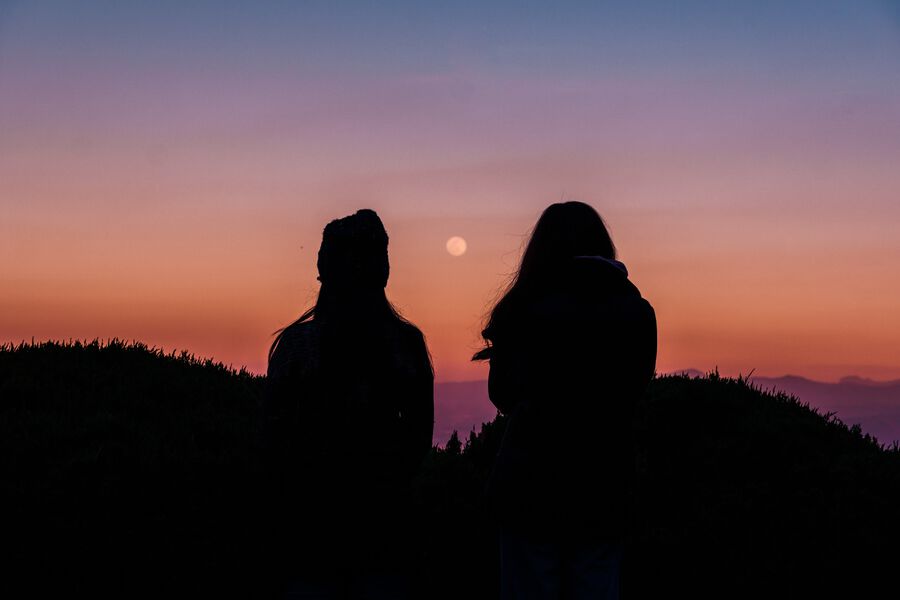
What to Eat and Drink in Chiang Mai?
1. Taste the Best Khao Soi in Chiang Mai at Khao Soi Lung Prakit Kaat Gorm (Featured on Netflix)
One of the best Khao Soi I have ever tasted in Chiang Mai is from Khao Soi Lung Prakit Kaat Gorm or Khao Soi Lung Prakit for short, thanks to my local friends who took me to this place when I was staying in Chiang Mai.
Khao Soi Lung Prakit is known for its aromatic Khao Soi soup, which has a little spice added to it. The Khao Soi Beef here is to die for. The spicy, thick soup brings out the taste and texture of the beef that no other Khao Soi restaurant can replicate. I highly recommend trying the Khao Soi Beef when you are here.
Khao Soi Lung Prakit Kaat Gorm is extremely popular among locals and tourists alike, so much so that the restaurant has been featured on Netflix, something that the owner is extremely proud of.
Khao Soi Lung Prakit was featured on Somebody Feed Phil" on Netflix by Phil Rosenthal, and you can watch his reaction online here. Their Khao Soi dishes cost about 50 THB, and the restaurant's opening hours are between 9:30 AM and 4:30 PM.
2. Try the Sukiyaki dish at the Famous Chang Phueak Suki
Another popular place to eat that you shouldn't miss in Chiang Mai is, in fact, a street food cart at Chang Phueak Evening Market called Chang Phueak Suki.
They are known for their fresh sukiyaki dish and their delicious sauce, as well as their generosity when it comes to the vegetables they include in their dishes. Their sukiyaki dish is one of the most delicious sukiyaki dishes you will ever taste, and all of this is available for only 60 THB. That's a steal.
I highly recommend that you order the "Dry Suki with Pork." You will love it. Despite how great this place is, because of its popularity, if you are there at 6 PM, you will likely have to wait for hours to get your dish. To avoid the queue, I have a secret tip for you.
Chang Phueak Suki has another branch that is more efficient, and you do not have to wait as long. It is located near Chiang Mai University. The Chang Phueak Suki university branch tastes just as good, and you do not have to wait in line for hours to eat like at the Chang Phuenk Evening Market.
Chang Phueak Suki at the evening market opens from 5:30 PM to midnight, whereas Chang Phueak Suki at the Chiang Mai University opens from 9 AM to 11 PM. So, if you don't want to wait in line, go eat at the university branch!
3. Sip a Morning Coffee by the River Ping at The Baristro
One of the best cafes I often frequent when I want to just sit and relax by the Ping River is The Baristro x Ping River. The cafe is located in this concrete house with a large platform, featuring many seating areas outside by the Ping River.
It is my favorite cafe in Chiang Mai, for many reasons. Firstly, they have one of the coziest atmospheres out there with many seating areas to choose from. Secondly, it is right by River Ping, and the outside seating area gives me a great view of the mighty river.
Thirdly, they have fast internet and power outlets all over the cafe that allow me to sit there and work for hours while I enjoy my coffee. Finally, they have a very creative coffee menu and pastries, as well as the classics, to choose from.
The Baristro coffees cost around 60 - 120 THB, which is considered pretty cheap for what you get and its unique locations. The cafe opens from 8 AM to 7 PM every day. I highly recommend the Baristro if you are looking for a nice, spacious place to sit and relax.
4. Listen to Jazz with a Beer at The North Gate Jazz Bar
One of the last things I thought I would be enjoying in Chiang Mai is jazz, but lo and behold, I found a funky jazz bar that I actually enjoy in Thailand! It's called The North Gate Jazz Co-op Bar, and they present a regular lineup of live jazz artists every day for you to enjoy.
There are around 2-3 bands every night, consisting of talented local students and foreigners alike. They play both Thai and English jazz songs.
Every Tuesday is a co-op day at The North Gate Jazz Bar, where the audience can come up and jam with the band, creating a dynamic back-and-forth between the performers and the audience.
You will find all kinds of people here, from the locals who regularly come here, to the world travelers, to local students. It is a mix of good vibes, good people, and the underground feeling that makes the North Gate Jazz Bar one of my favorite places to visit at night in Chiang Mai.
The North Gate Jazz Bar opens from 7 PM to 12 AM every day. They have a few selections of liquor, and the place is small, but it gets packed every night. If you enjoy jazz, there is no better place to be than here.
5. Have Lunch at Han Teung Chiang Mai Restaurant
One of the most popular restaurants among the locals, which was also recommended to me by my friend from Lampang, is Han Teung Chiang Mai Restaurant, a local restaurant that still maintains the spiciness and deliciousness of the unique palate of Northern Thai food.
It is also extremely cheap with a ton of options for you to choose from, which makes it even better. This allows you to try many things at once, even if you are traveling solo.
The restaurant opens from 9 AM to 8:30 PM and in order to get a table (it gets crowded at lunchtime and dinnertime), you will have to wait in a queue at its café in front of the restaurant. Thankfully, while you wait to be seated, you can order the food right away so that by the time you have the table, your food will be ready for you.
Dishes I recommend are Deep Fried Steaky Pork, Papaya Tempura Salad, and stir-fried fermented pork with egg. They are all delicious and not too spicy (by Thai standards 😉).
6. Eat Street Food at The Chiangmai Complex Night Market
Just before you return your motorbike and end the day, on your way back from Doi Suthep, be sure to stop by the Chiang Mai Complex night market for a little stroll and some street food.
This night market is popular among the university students of Chiang Mai due to its close proximity to the popular University of Chiang Mai. You will find all kinds of delicious street food, snacks, or reasonably priced items to buy from the flea market next to it.
I got myself a dry seafood sukiyaki dish at one of the street food stalls at Chiang Mai Complex night market as a reward for exploring the city of Chiang Mai on a motorbike, all in one day.
When to Visit Chiang Mai?
The best time to visit Chiang Mai is from November to January, when the weather is cooler and less humid due to Thailand's northern climate. This makes it much more enjoyable to ride a motorbike around Chiang Mai.
That said, Thailand has suffered a lot from air pollution in recent years due to the burning season, and it is extremely prevalent during Thailand's winter period (December - January). So, even though the weather is cooler, your visibility might not be the best. Be sure to buy a face mask if you decide to visit Thailand during this time.
March-April is the hottest and most humid period of the year. So, if you can't handle the heat very well, avoid visiting during this time. The air quality may be slightly better during this period, but it's not guaranteed.
All the other months are considered to be the rainy season, which, even though the weather is a little more manageable than the summer months, you will also see a lot more rain, which might prevent you from enjoying the outdoors. The air quality during this time should be better due to the rain.
As you can see, the best time to visit Thailand used to be during its wintertime. However, now that the air quality is getting worse and worse, you will have to decide which is more important to you as a traveler: good weather but bad air quality, or vice versa.
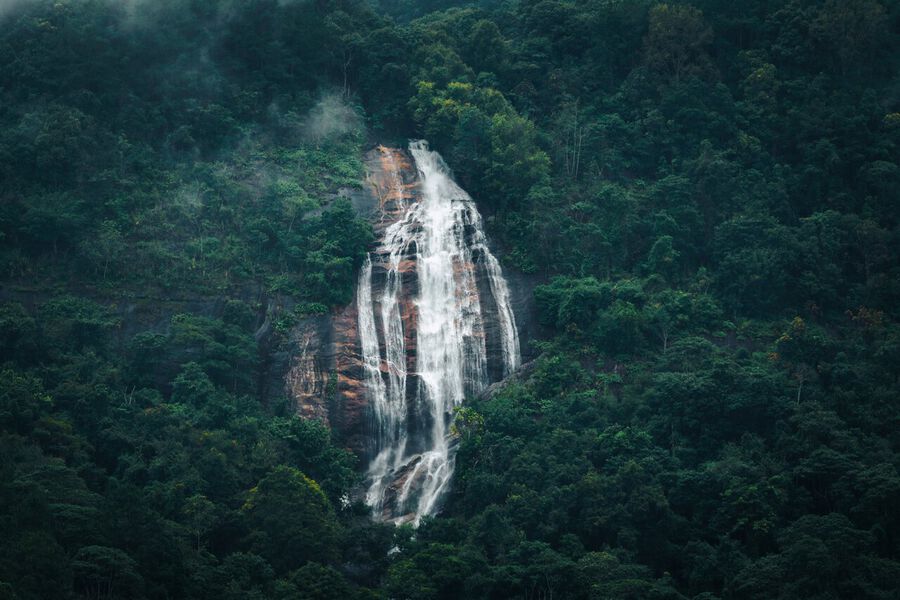
How to Get to Chiang Mai?
Getting to Bangkok
In order to get to Chiang Mai, first, you will have to get to Bangkok, the capital city of Thailand. Thankfully, Bangkok is a large hub in the region, so you should have no trouble finding a flight from your home country to Suvarnabhumi International Airport or Don Muang International Airport (budget airlines only), Thailand.
From the US, unfortunately, there are no direct flights to Chiang Mai or Bangkok, so you will have to rely on transit flights by Emirates, Qatar, or Turkish Airlines from the East Coast or ANA Airlines or Korean Air from the West Coast.
From Europe, you can fly from the most popular European hubs like London, Paris, or Frankfurt via Thai Airways or local carriers such as British Airways, Air France, or Lufthansa to Bangkok. Then, you can fly domestically to Chiang Mai. You can also choose Etihad, Qatar, or Emirates if you don't mind transiting.
From within Asia, there are several low-cost airlines that offer multiple routes from various hub cities such as Singapore, Kuala Lumpur, Tokyo, and Jakarta to Chiang Mai, with transit through Bangkok. AirAsia and Thai Lion Air are excellent low-cost options and they also provide direct routes from destinations like China to Chiang Mai.
To find a cheap flight to Bangkok, I would recommend that you use Skyscanner or Expedia to look for the cheapest route and schedule so you can compare and pick the best one.
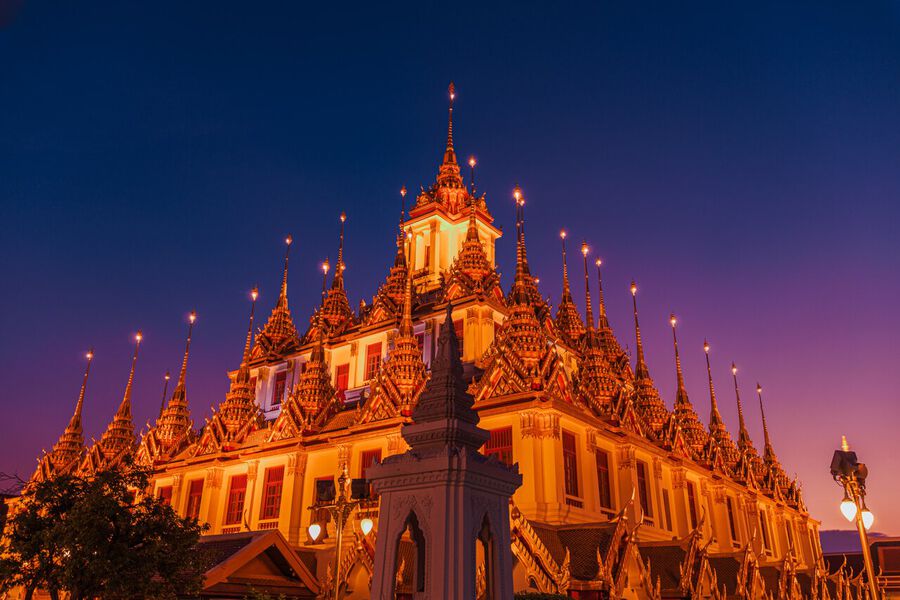
Getting from Bangkok to Chiang Mai
By Air: The fastest way to get from Bangkok to Chiang Mai is to fly from Don Muang Airport to Chiang Mai International airport on one of the many low-cost airlines in Thailand.
For AirAsia, there are over 13 flights per day and they can cost as low as 492 THB, which is even cheaper than taking a bus or a train. There are also Thai Lion Air and Nok Air that offer the route, so be sure to check them out too. You can book the flight from Bangkok to Chiang Mai here.
By Bus: If you are not in a rush, you can also take a bus from Morchit Bus Terminal in Bangkok, and it will take you about 10 hours to reach Chiang Mai Bus Terminal Arcade 2. The bus leaves from Morchit Bus Terminal every hour from 5:30 - 22:00, and it should cost about 400 - 800 THB per person.
If you are looking to reserve a seat for your bus to Chiang Mai, you can book through here: Book a bus ticket from Bangkok to Chiang Mai.
By Train: You can also take a train from Hua Lamphong Train Station in Bangkok to Chiang Mai Train Station, which can take anywhere from 11 to 15 hours. It is a long ride, and you are not even saving that much as the price for a ticket is about 400 to 500 THB. There are 7 trains running between the two stations from 08:30 to 22:00 every day.
To get the train ticket, I would recommend that you go to Hua Lamphong train station a few days before and get it from there. However, if you are traveling during the high season, it might be worthwhile to book the train beforehand.
To book a train ticket from Bangkok to Chiang Mai, you can book through here: Book a train from Bangkok to Chiang Mai, Thailand.
How to Get from Chiang Mai Bus Terminal to Your Accommodation?
Chiang Mai is massive and extremely crowded, so the easiest way to get from Chiang Mai Bus Terminal Arcade 2 to your accommodation is to hail a taxi with the Grab application, available on Android and iOS.
It should cost around 100-120 THB to get from the bus terminal to the city center, and depending on the traffic, it could take from 15 minutes to an hour to arrive.
How to Get Around Chiang Mai?
By Motorbike: With this itinerary, you will have to rent a motorbike, which I think is the best way to get around Chiang Mai as you will be covering quite a distance, and you are also going up the mountain to Wat Phra That Doi Suthep, which is quite far from the city center.
To rent a motorbike in Chiang Mai, I recommend you rent it from Mr. Mechanic, a motorbike rental shop that offers a wide variety of motorbike options for you to choose from.
For a 150 cc motorbike, the rent should be around 500 THB per day. You can also get a 200-250 cc motorbike for 700 THB or more from Mr. Mechanic. I highly recommend getting a motorbike with a 150 cc engine or higher to tackle the mountain roads in Chiang Mai.
By Red Song Taew: You can also get around by the red Song Taew that roams around the city center. You can expect to pay around 30 THB per person for going anywhere within the city wall and around 50-60 THB per person for going outside. You can also use them as a taxi by asking the driver directly and negotiating the price. Additionally, you can sit up front, just like a taxi driver.
By Car: If you want to do other short trips around Chiang Mai, I would recommend renting a car instead. Places like Chiang Dao District are quite large, and many of the places I recommend here are in the mountains, so renting a car is the easiest and most comfortable way to get around Chiang Mai.
There are several car rental companies operating right from the Chiang Mai airport, with a price range of around 700 - 1500 THB depending on the size of the car.
To rent a car in Chiang Mai, you can book through here: Rent a car in Chiang Mai.
How Many Days to Spend in Chiang Mai?
If you stick to the Best Things to Do Section, you can expect to spend at least 2 nights in Chiang Mai. But if you want to go outside of Chiang Mai as well, for example, to Lamphun and other places under the Day Trips/Short Trips Section, you will have to spend at least a week or more in Chiang Mai.
Here is a rough itinerary of what you can do in and around Chiang Mai:
Day 1: Visit all the attractions within the city wall in the morning, go outside and explore Chiang Mai outside of the city wall before going for sunset up at Wat Doi Suthep on the mountain, and then end the day at a night market.
Day 2 (Optional): You can visit Lamphun as a day trip by leaving early in the morning, exploring all of Lamphun's attractions, and arriving back in Chiang Mai by 5 PM.
Day 3 (Optional): Visit Doi Inthanon and the surrounding attractions.
Day 4 (Optional): Drive the Samoeng Loop and visit the Elephant Nature Park.
Day 5 (Optional): Explore the Chiang Dao District.
How Much Money Do I Need For Chiang Mai?
From the rough itinerary above (excluding all the optional days), we can calculate approximately how much money you will be spending for a one-day itinerary in Chiang Mai as follows:
Accommodation: With a total of 2 nights in Chiang Mai, you will be paying around 16 USD (480 THB).
Food: Food costs about 50 THB minimum in Chiang Mai, so you can expect to pay around 150 THB for one day.
Transportation: Since you will be renting a motorbike for the day, you can expect to pay 500 THB for transportation plus gas.
Activities: Most temples in Chiang Mai have a 40 THB entry fee, and since there are around 5 temples you will be visiting, you can expect to pay around 200 THB for activities.
Total Budget for 2 days in Chiang Mai: 1,330 THB (44 USD)
Is it Safe in Chiang Mai?
Chiang Mai is a big city, and even though Thailand is safe in general, always second guess people who approach you and try to offer you something that is too good to be true. Because to be honest, if it is too good to be true, it probably is. That is a sure way to avoid any scam attempts from taxi drivers or other scammers that might approach you.
And as always, please exercise precautions like you would when traveling in any foreign country. Do not leave your belongings unattended and watch out for your belongings at all times.
Which tourist SIM card is best for Chiang Mai?
Update: If your phone supports eSIM, I highly recommend checking out Airalo, a global eSIM marketplace. It allows you to stay connected affordably while traveling in Chiang Mai, Thailand without having to switch out your physical SIM card.
Gone are the days when you needed to scramble to find a local SIM card at an airport upon arrival. You can purchase an eSIM before your arrival, and you'll be good to go. If your phone doesn't support eSIM, here is how you can get a local SIM card in Chiang Mai, Thailand:
There are 3 major carriers in Thailand: AIS, DTAC, and True. All of them offer a pretty similar range of traveler's packages as well as coverage. Personally, I use AIS as I have been with them since my first phone. They have a lot of Support Centers around Thailand, and their coverage hasn't failed me yet. So, if you are looking for a reliable carrier, I can recommend AIS.
There are 3 packages for tourists: 5 GB for 5 days at 160 THB, 15 GB for 8 days at 299 THB, and 30 GB for 15 days. Depending on how long your trip to Thailand will be, you can pick one of these 3 packages that fit your itinerary the most.
With these three packages, you can top up more if you need additional data or calls for your trip. More often than not, 5 GB is more than enough for me to travel around Thailand for a month.
For more information about Thailand's local SIM card: Thailand's Prepaid Data SIM Card.
Tips: To stay connected with people at home, be sure that you have a VPN, such as ProtonVPN, installed before traveling. It's FREE, and you can gain access to services that may be blocked in certain countries.
What to Pack for Chiang Mai?
As you may already know, I am an advocate of light traveling, and indeed, packing light for a journey like this is a unique art form. Here are some packing tips for your upcoming trip to Chiang Mai, Thailand:
- Walking/Hiking Shoes: With all the walking and possible hiking during your travel, a comfortable pair of shoes is a must. I recommend the Timberland 3-Eye Classic Boat Shoes that are my go-to pair for long strolls and hikes.
- Breathable Shirts: Given the potential for hot weather, pack a few breathable shirts for your outdoor adventures.
- Shorts/Jeans: Anticipate lots of walking during your travels? Be sure to pack some breathable shorts and a pair of Levi's jeans for when the weather cools. For women, leggings are excellent for both hot and cold climates, so consider packing some as well.
- Outer Shell Jacket: An outer shell jacket is great for windy or rainy conditions. I highly recommend the Columbia Watertight Jacket (for women). It's lightweight, breathable, and even comes in a cool orange color.
- Microfiber Towel: A Microfiber towel is the ideal backpacker's towel due to its lightness, quick drying, and compressibility.
- Swim Suits: A swim trunk is a must-pack item if you are planning to visit Chiang Mai, Thailand in the summer, just in case there is a body of water you can jump in.
- Camera: You should also pack a good camera for your trip so that you can capture all the beautiful experiences you might have. I recommend the Sony a7R V camera together with the Sony 24-70mm f2.8 GM II lens, which is probably the highest-performance camera and lens combination you can get right now.
- Power Bank: Keep your electronics charged on the go with a 20,000+ mAh Power Bank.
- Water Bottle: The Hydro Flask Trail Water Bottle is a great insulated water bottle to have with you in cities or on hiking trails. It is lightweight and can keep your water cold or warm for more than 12 hours. It's a total game-changer.
- Universal Adapter: You'll need just one universal adapter to plug in your electronics in any country you visit.
- Packing Cubes: Packing Cubes will help you save space in your backpack and keep all your belongings organized.
- Daypack: The Langly Alpha Globetrotter is my go-to everyday camera backpack. It's large enough to carry all my travel gear, and it comes with plenty of slots and pouches. Plus, it's stylish as hell!
- Large Backpack: You will need a large backpack to carry all of your stuff. I recommend the Osprey Atmos AG 65L backpack. With excellent weight distribution and a lifetime guarantee, you can't go wrong with Osprey.
For more information on what I pack in my backpack for this trip, check out: My Packing List: 60 Travel Essentials.
Now that we have all the information we need, it's time to start planning your trip! Here are some resources to help you get going:
Are you planning to travel independently? Be sure to check out my guide on How To Plan A Backpacking Trip here.
Further Reading for Northern Thailand
Looking for more information for your trip to Northern Thailand? Here are a collection of articles about Thailand that you might find useful:
- Looking for a complete travel guide to Southeast Asia? You should check out our 3 Months Backpacking Itinerary for Southeast Asia.
- Looking for an itinerary for Thailand? Check out 10 Days Itinerary for Thailand.
- Not convinced by my words? How about looking through these photos I took in Thailand? 25 Beautiful Photos from Thailand.
- If you are traveling to Thailand, it is important for you to know what you should and shouldn't do. Here are 10 Tips for Traveling in Thailand.
- Thai Street Foods is among the best in the world and to help guide you through the street food cuisine of Thailand, be sure to check out the 15 Best Street Foods in Thailand to Try.
- Learning a bit of Thai phrases will go a long way for you when you visit Thailand. Here are 15 Thai Phrases You Should Know.
- More often than not, your journey in Thailand will begin in Bangkok, and there are a ton of things you shouldn't miss in this city. Here are the 16 Best Things to Do in Bangkok.
- Want to spend a day outside Bangkok but not sure where? Here are the 9 Best Day Trips To Make From Bangkok.
- Don't have a lot of time in Bangkok? Check out our One Day in Bangkok Itinerary.
- Have more than one day in Bangkok? I highly recommend spending at least 3 days in Bangkok. Here is a complete 3 Days Itinerary for Bangkok.
- For the best areas and neighborhoods to stay in Bangkok, check out: 7 Best Areas to Stay in Bangkok.
- First time in Northern Thailand? Check out the 10 Best Places to Visit in Northern Thailand.
- Want to get off the beaten track and really explore Northern Thailand? Check out: 2 Weeks Northern Thailand Itinerary.
- Looking for another great road trip to get you off the beaten path in Northern Thailand? Check out: 9 Days Nan Loop Road Trip Itinerary.
- Not sure where to begin your journey in Northern Thailand? How about an old capital with a Complete Backpacking Guide to Phitsanulok?
- Come explore the lesser-known mountainous region of Phetchabun with this travel guide: Discover Phetchabun: 10 Incredible Things to Do and More.
- Tired of the constant heat in Thailand? Escape to the cool mountains of Khao Kho with this guide: A Complete Travel Guide to Khao Kho.
- As a gateway to the mountains of Phetchabun, Lom Sak is the perfect place to stop by before you head into the mountains. For a complete travel guide, check out: A Complete Travel Guide to Lom Sak.
- Did you know that the cradle of Thailand began in the ancient city of Sukhothai, north of Bangkok, in the 13th Century? If you are interested in the history of Thailand, here is The Ultimate Backpacking Guide to Sukhothai.
- Sukhothai has a twin city that has prospered together since the first founding of the Siam Kingdom. The ancient city is called Si Satchanalai, located 60 km north of Sukhothai, and there are many less-traveled ancient ruins there waiting for you to explore. Here is A Complete Backpacking Guide to Si Satchanalai.
- Kamphaeng Phet, which translates to "The Wall of Diamond," was an outpost town that played a role in protecting the Siam Kingdom from invasion for several decades, and you can still see the remnants today. Here is A Complete Backpacking Guide to Kamphaeng Phet.
- Lampang is low-key, one of the most laid-back places in the north with a northern vibe similar to Chiang Mai but much quieter and more authentic. If you are looking to go off the beaten path in Thailand, check out The Ultimate Backpacking Guide to Lampang.
- Spending a few days relaxing in Lampang? Here are 9 Best Cafes and Restaurants to Try in Lampang.
- Chiang Mai is a big city. How does one find the best restaurants and cafes, you asked? Check out 25 Absolute Best Restaurants and Cafes in Chiang Mai.
- Doi Inthanon is the highest mountain in Thailand, and in order to travel there, you will need a complete travel guide. Here is The Ultimate Backpacking Guide to Doi Inthanon.
- Have a day to spare in Chiang Mai? How about going on a day trip to Lamphun? Here are 7 Best Things to Do in Lamphun.
- Looking to go off-the-beaten-path in Chiang Mai? How about visiting the untouched nature of Doi Ang Khang and the Chinese-influenced towns of Arunothai and Chai Prakan? Here are the 10 Best Things to Do in Doi Ang Khang.
- One of the best road trips you can make in Thailand is traversing the Mae Hong Son Loop. Here's a complete backpacking guide and a 10-day itinerary for the Mae Hong Son Loop.
- Looking to start the Mae Hong Son Loop but not sure where to start? How about the city of Mae Sariang? Here are 8 Best Things to Do in Mae Sariang.
- Mae Hong Son City is one of my favorite cities on the entire Mae Hong Son Loop road trip. Here are 15 Best Things to Do in Mae Hong Son City.
- Pai has become a tourist hotspot ever since it was discovered and featured in many travel blogs, but what is there to do in Pai? We have the answer. Here are 15 Best Things to Do in Pai, Thailand.
- Chiang Rai is home to not just stunning temples like the White and Blue Temples but also the beautiful mountains of Pho Chi Fan and Doi Pha Tang. Here are the 16 Best Things to Do in Chiang Rai.
- One of the most iconic peaks in Thailand is Phu Chi Fa, and you can hike to the top of it among other hiking trails around Chiang Rai's highlands. Here is A Complete Hiking Guide to Phu Chi Fa.
- Chiang Saen is an ancient walled city, full of history and beautiful scenery, waiting for you to explore. Here are the 10 Best Things to Do in Chiang Saen.
- Phrae is so much more than a stopover destination. Here are the 14 Best Things to Do in Phrae.
- Nan is the upcoming trendy tourist attraction in Thailand that is still pretty much unexplored by foreigners. If you want to travel to Nan, here are the 16 Best Things to Do in Nan.
- Phayao is a beautiful hidden gem of Thailand's north that is waiting for you to explore. It rarely gets any tourists, all the more reason to visit Phayao before it is discovered! Here are the 12 Best Things to Do in Phayao.
- Want to explore other parts of Thailand? How about exploring Central Thailand or Southern Thailand?
- Wondering where to go after Thailand? How about you continue on to Malaysia, Myanmar, or Indonesia?
- For all articles about Thailand, visit Thailand Travel Guide page.
- Looking to travel to Southeast Asia? Check out all of my articles about Southeast Asia here: Southeast Asia Travel Guide page.
- You can see all my Asia-related articles here: Asia Travel Guide page.
- For more of my travel guides like this, visit my Destinations page.
Disclosure: This post may contain affiliate links.
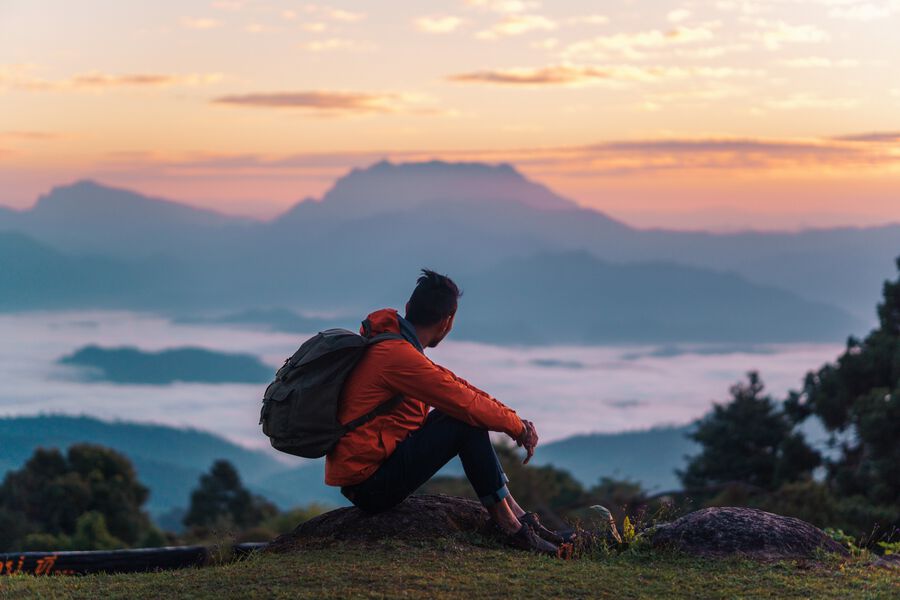


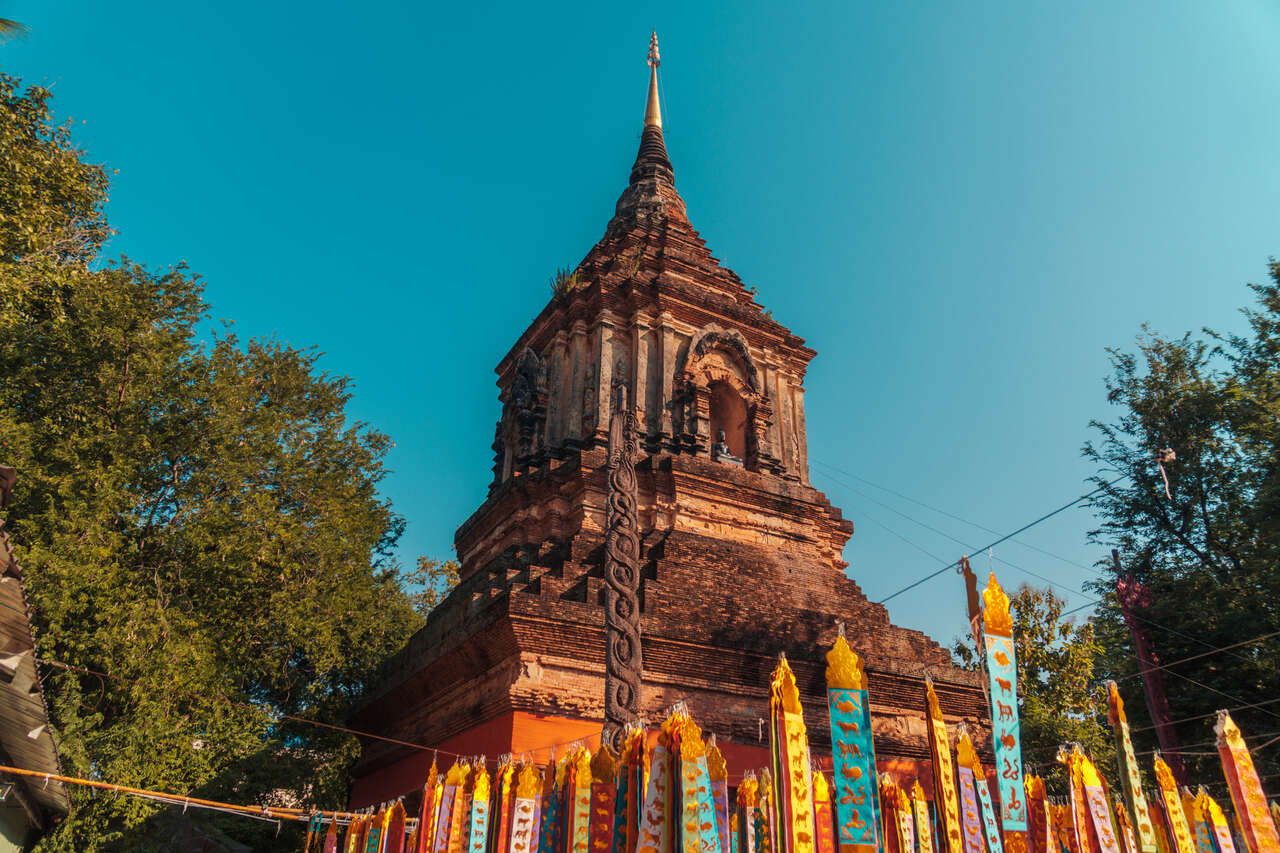


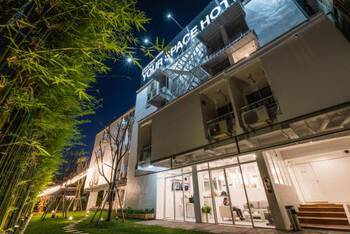
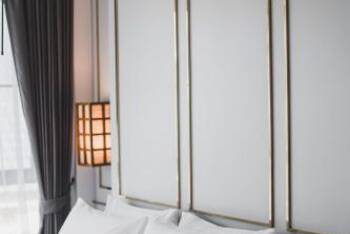
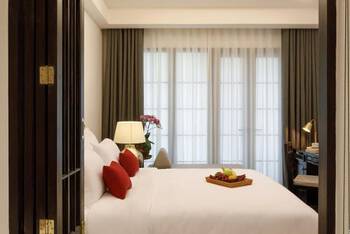



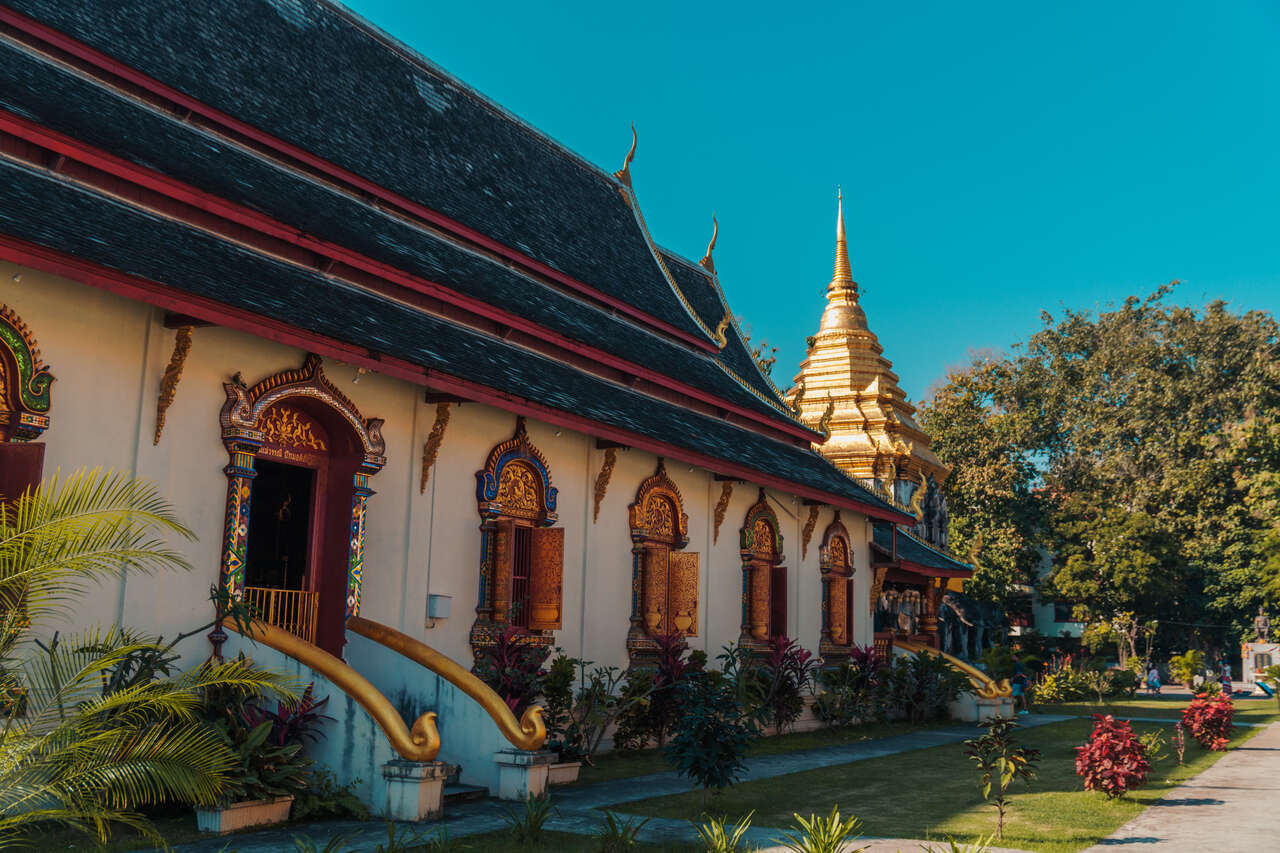

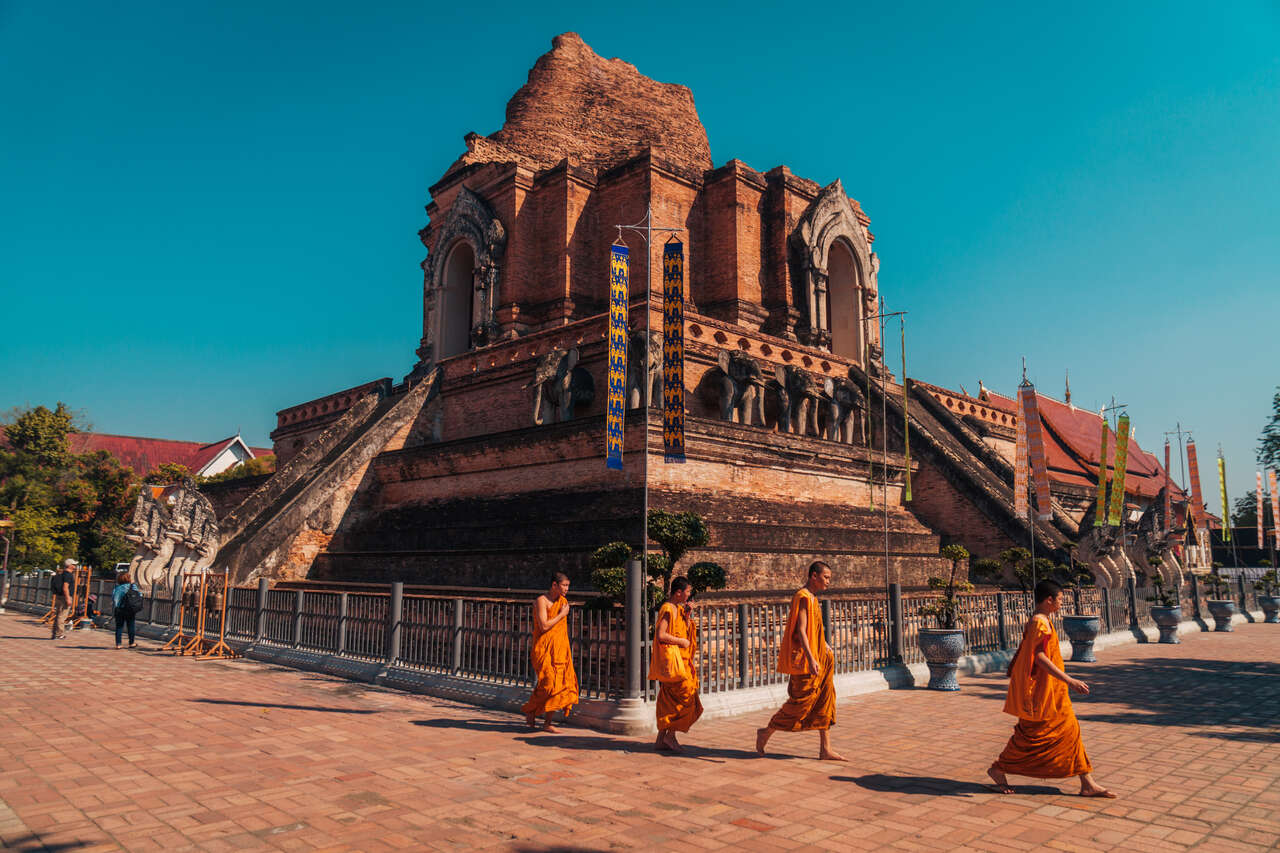

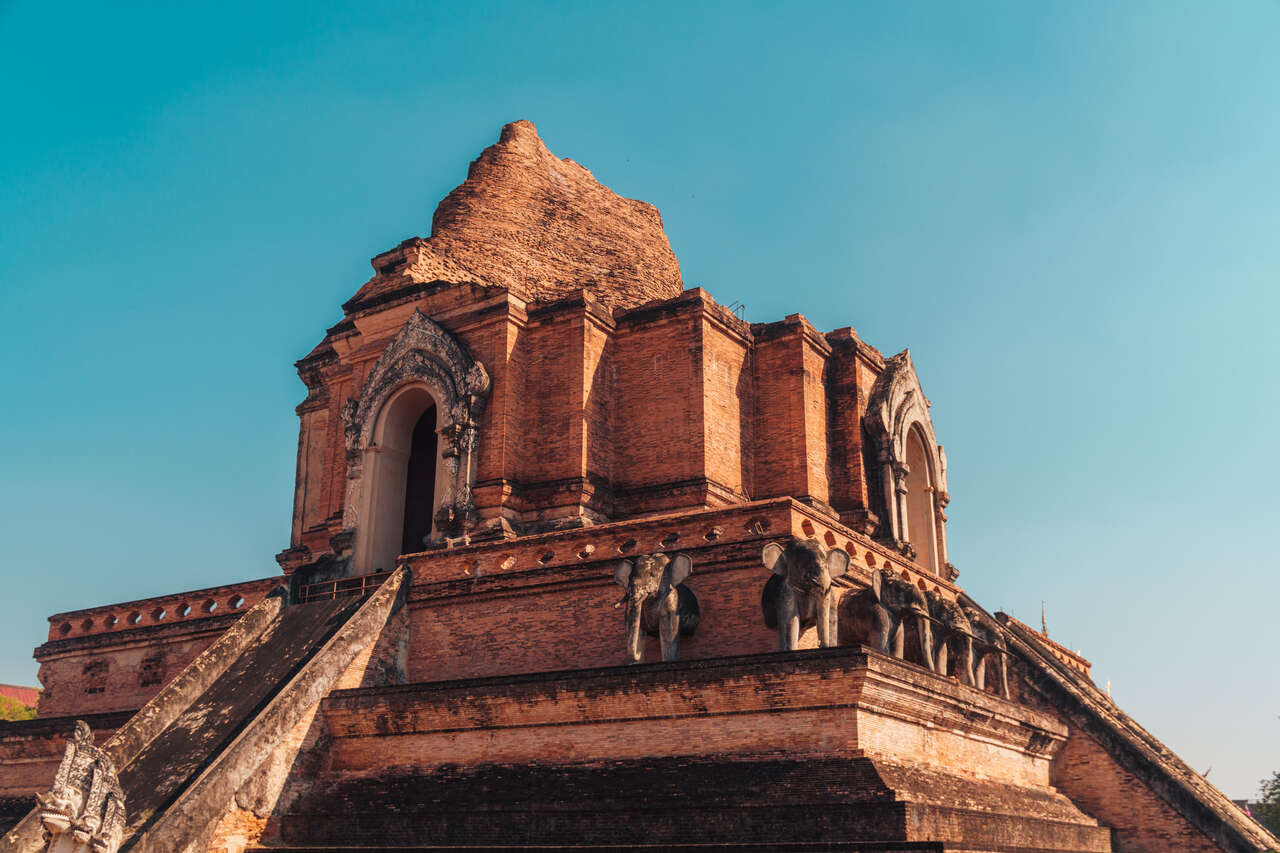


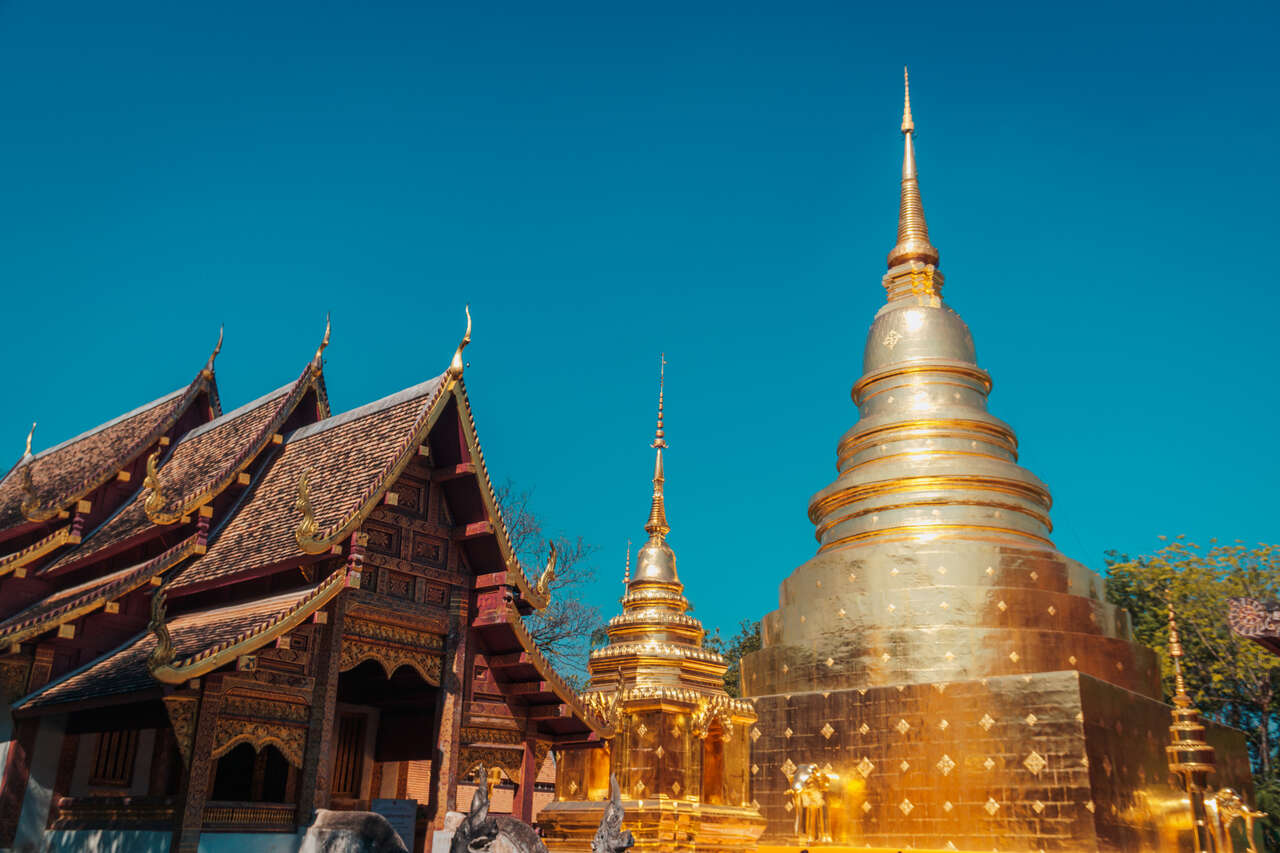




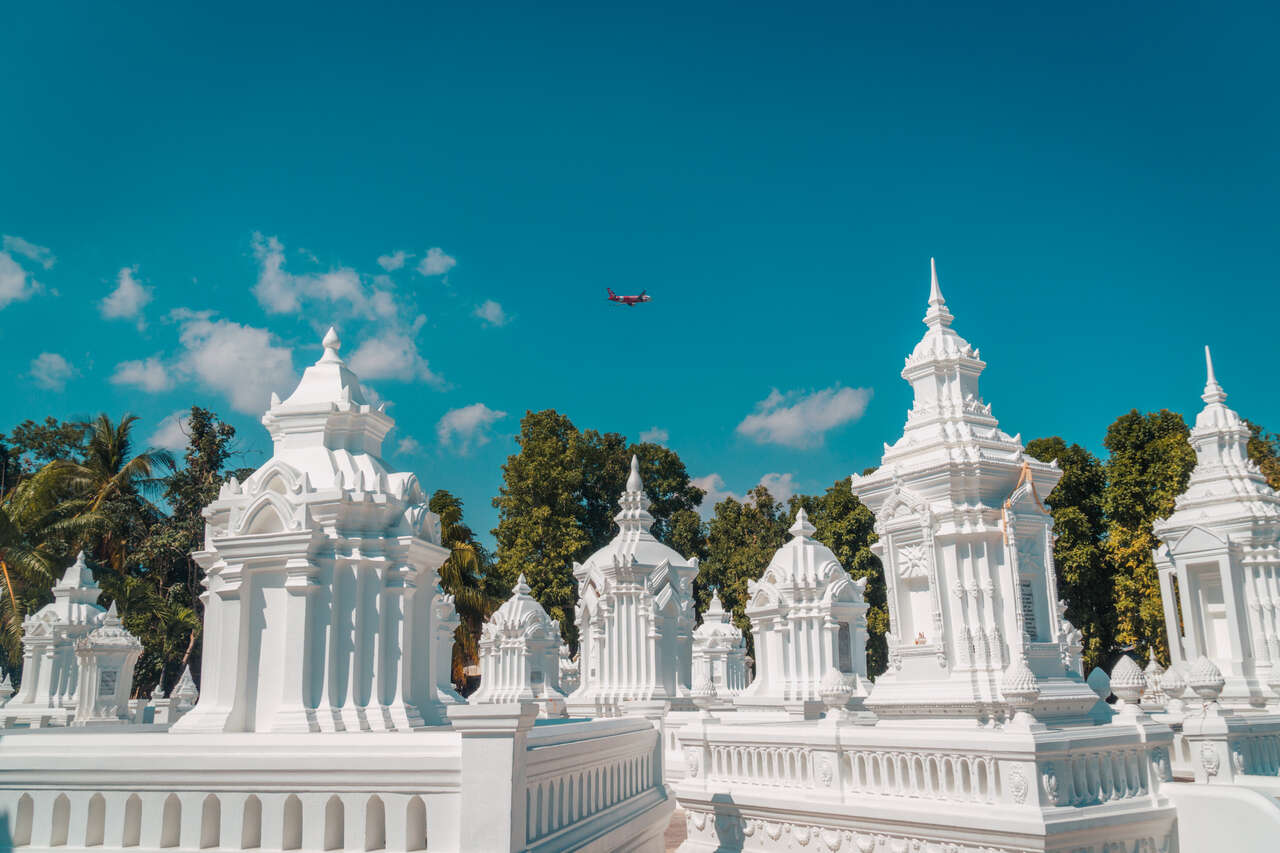



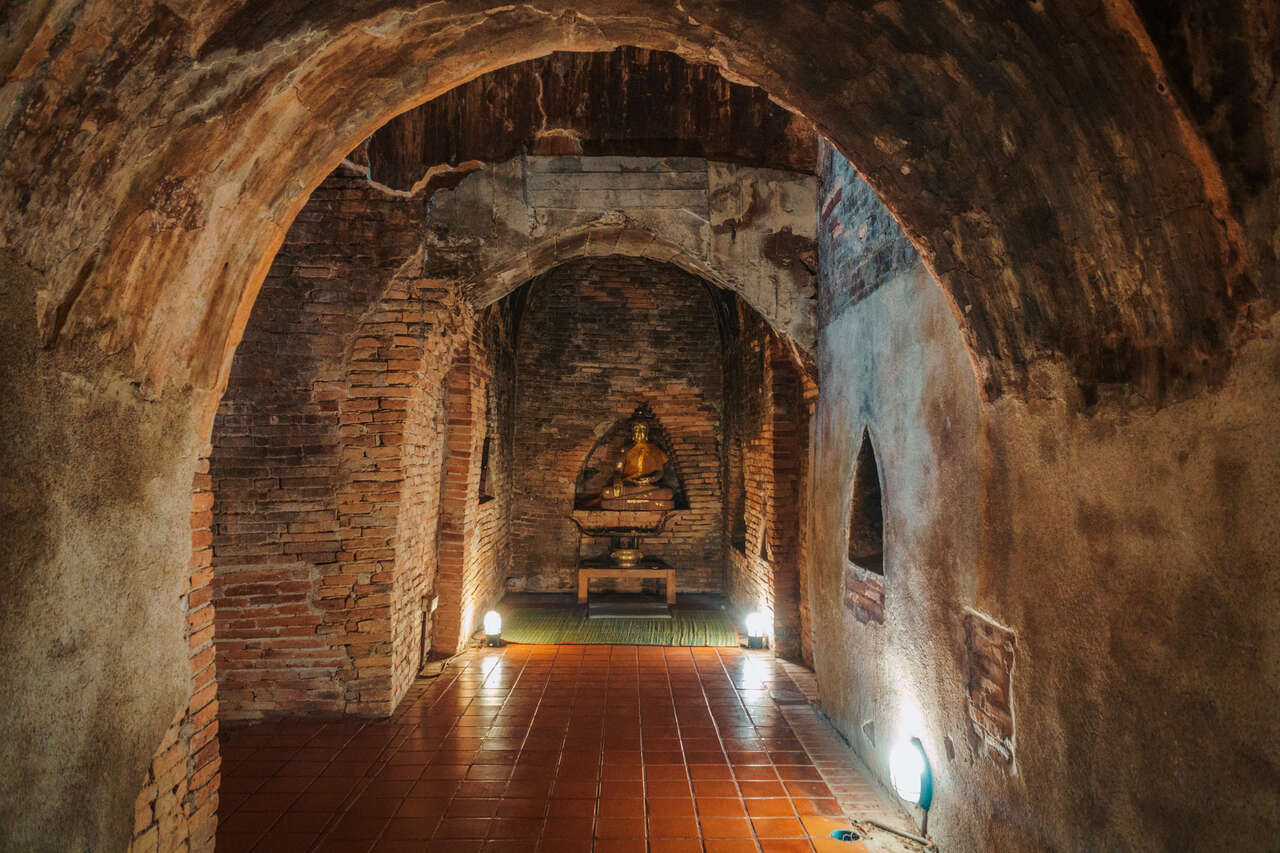










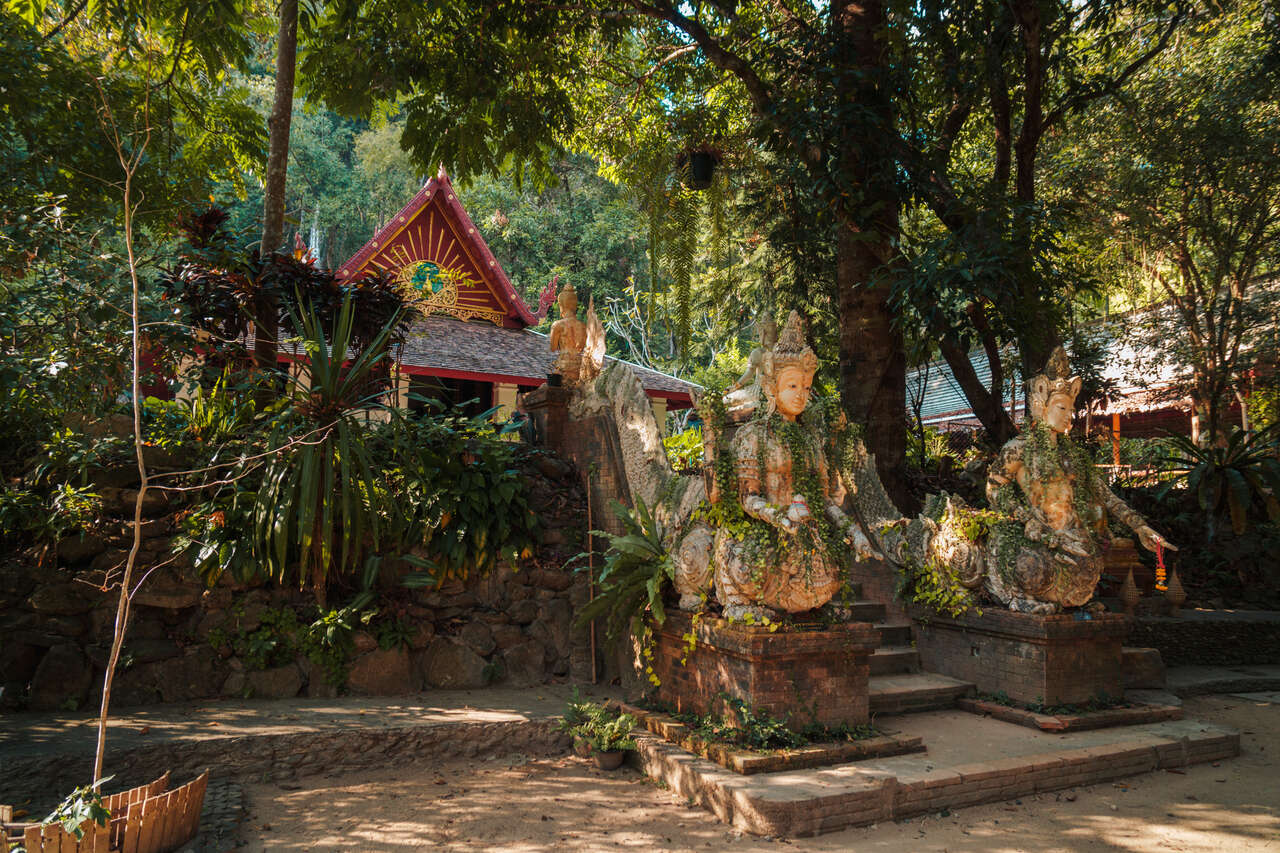



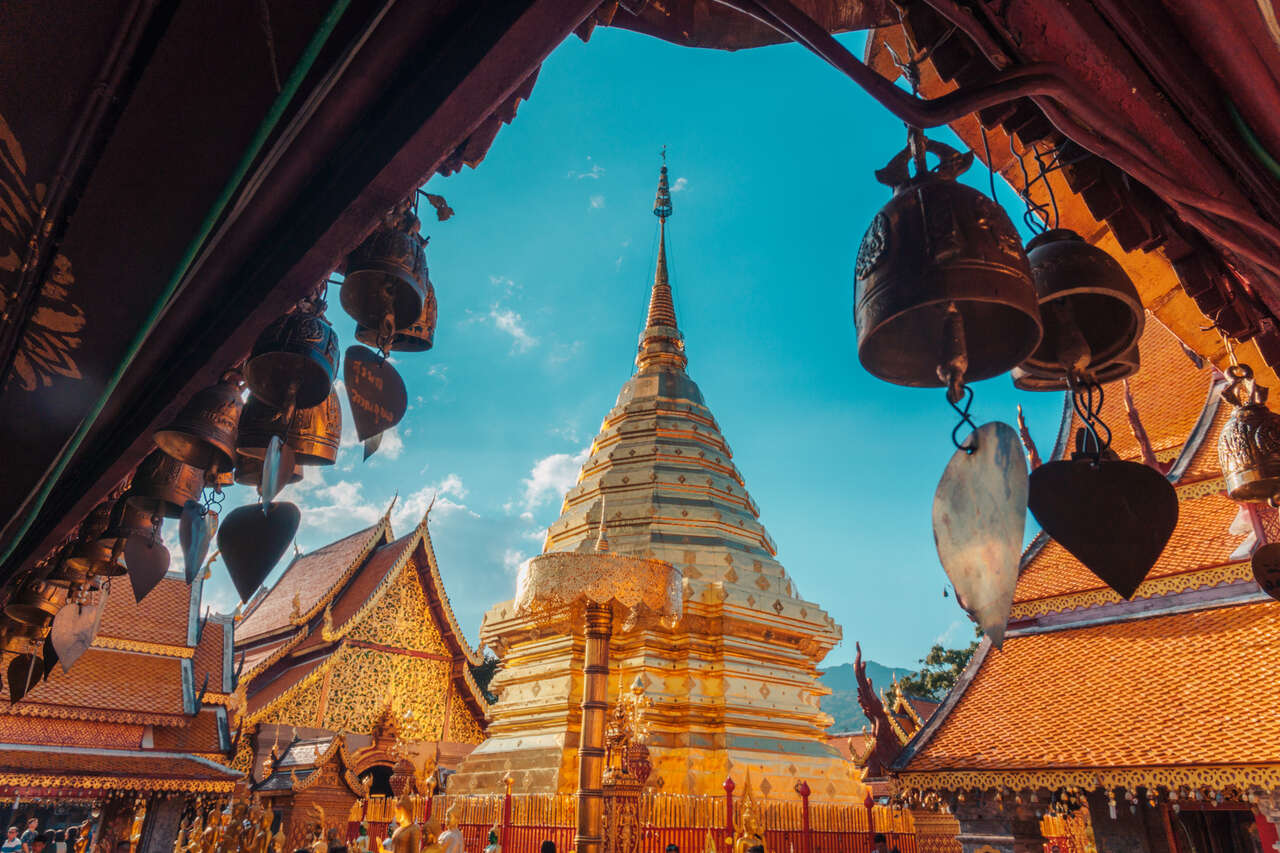
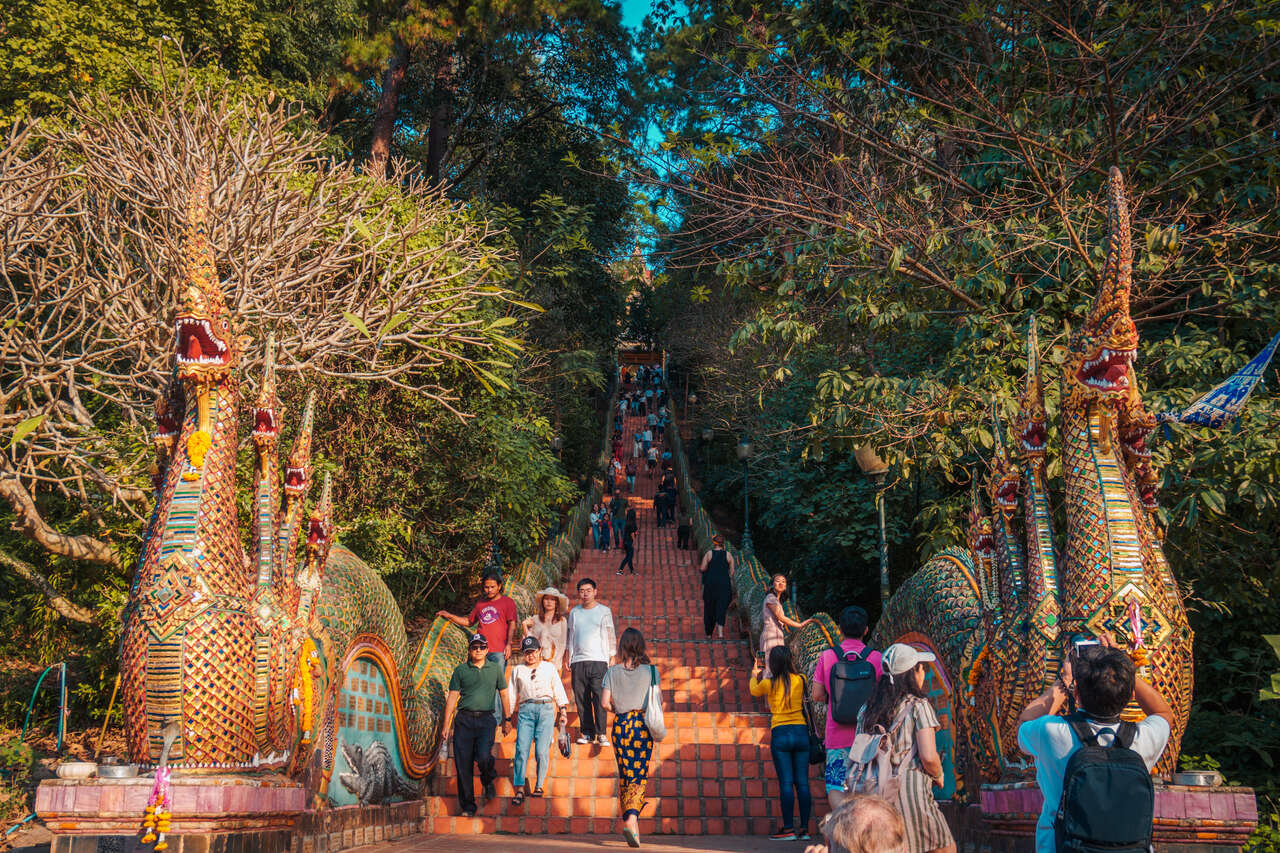



















































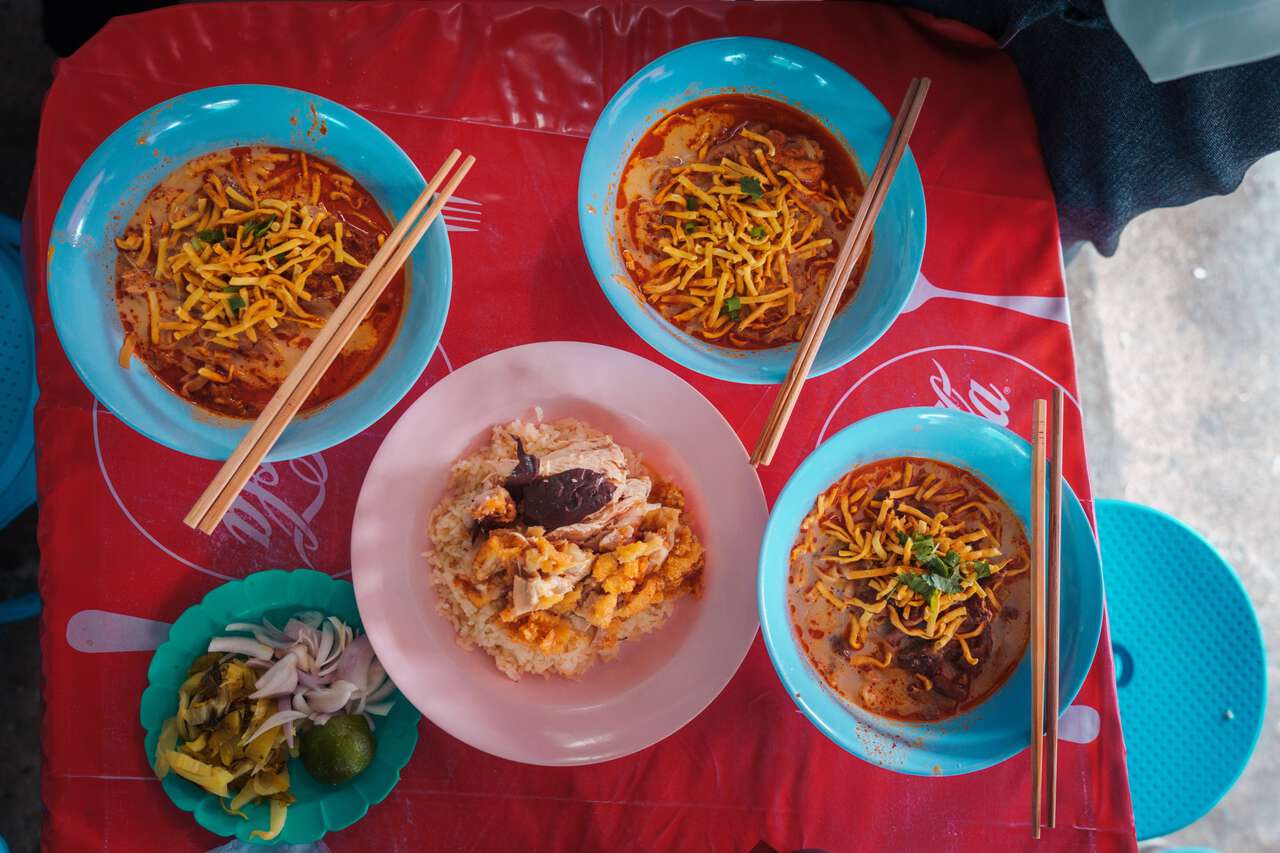



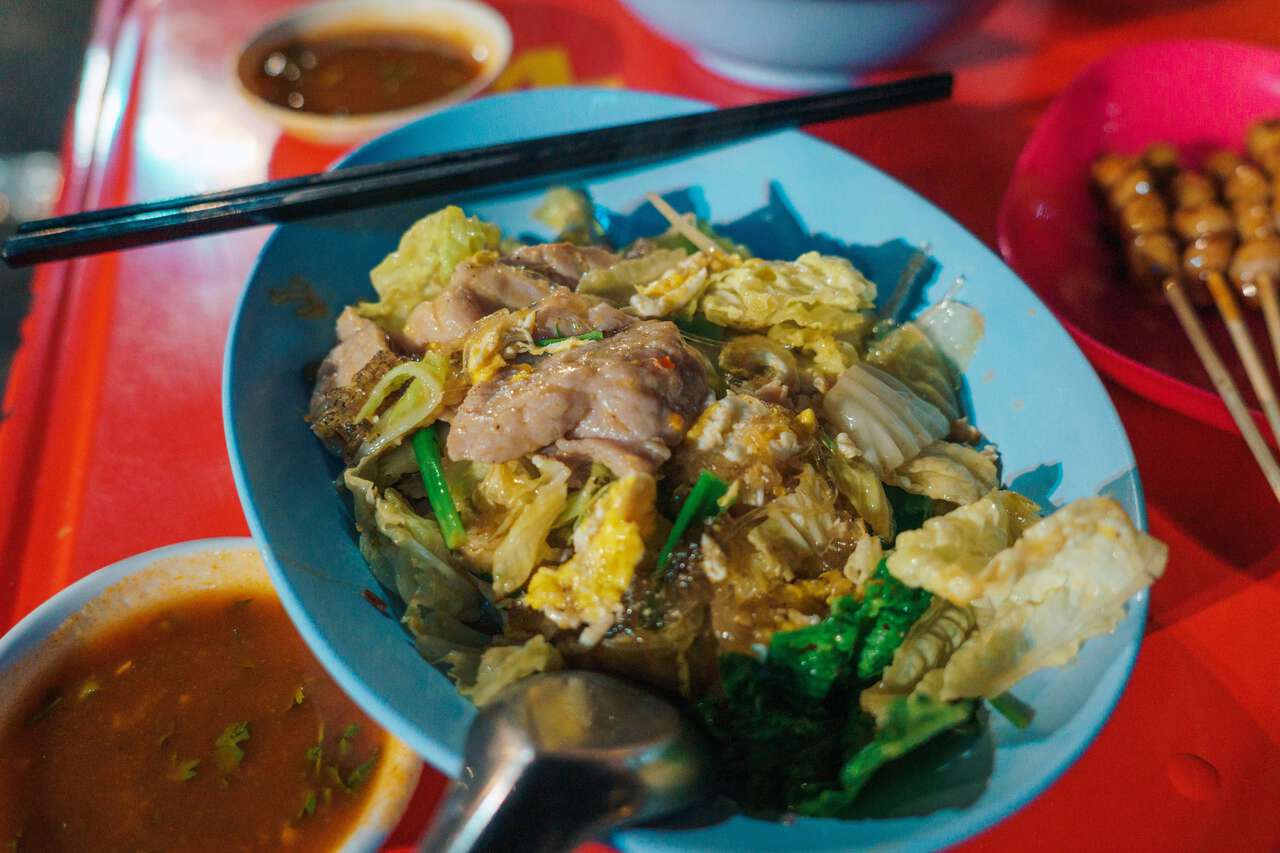







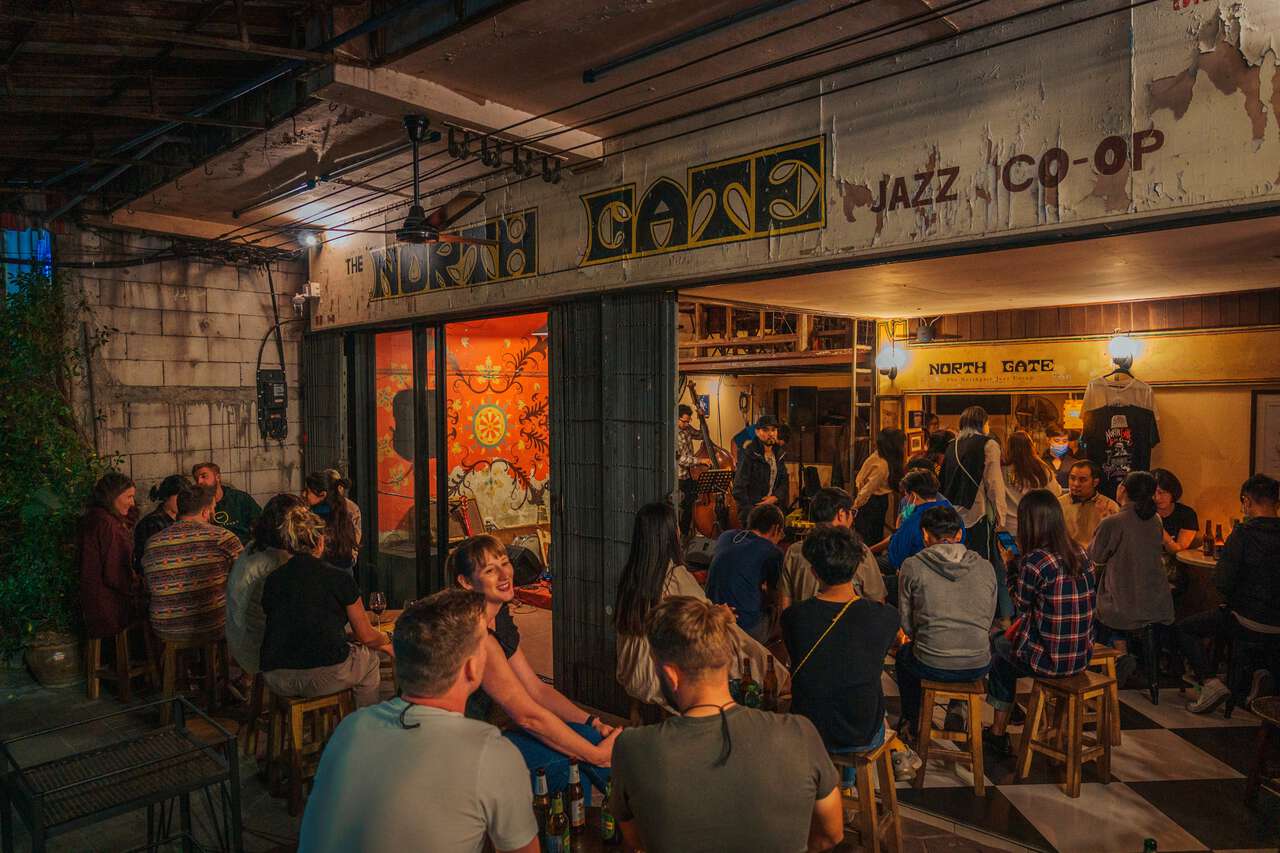


















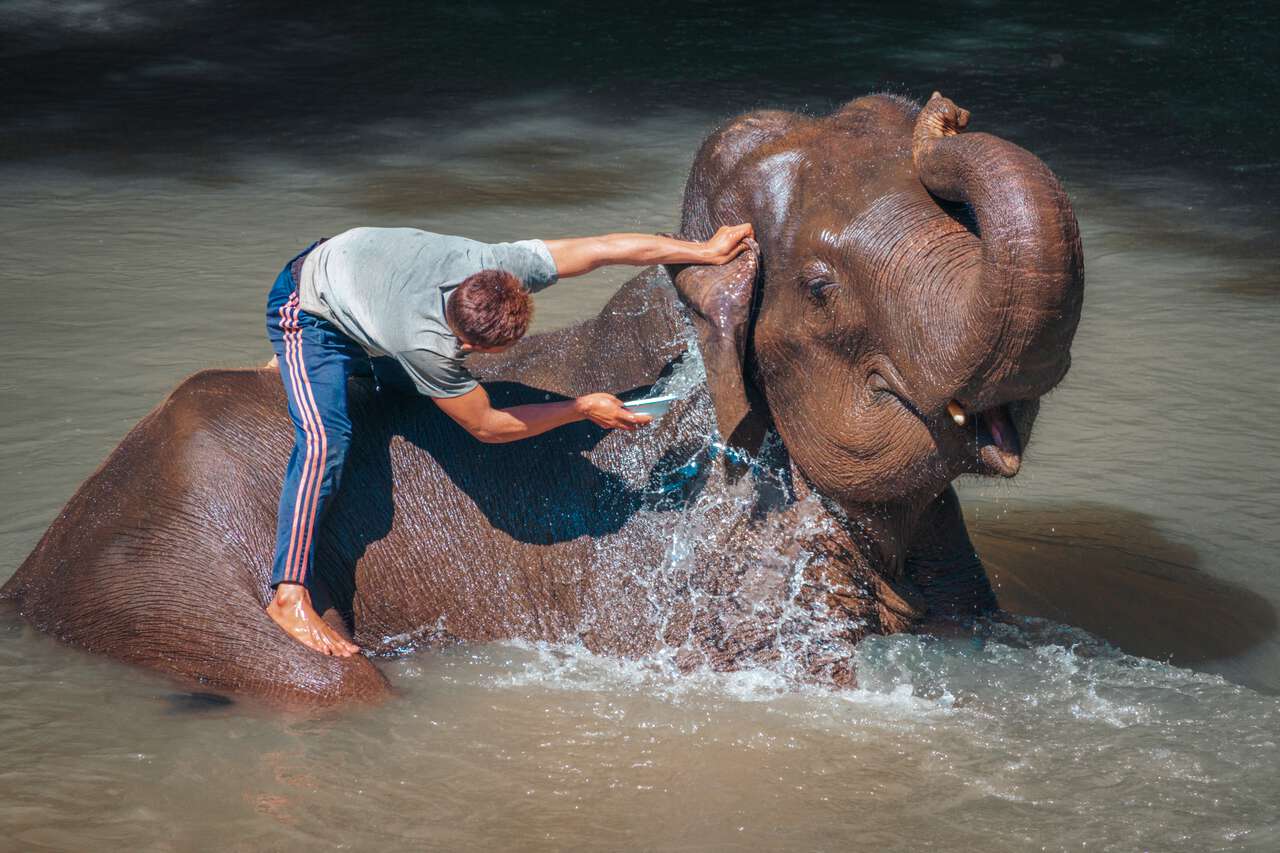
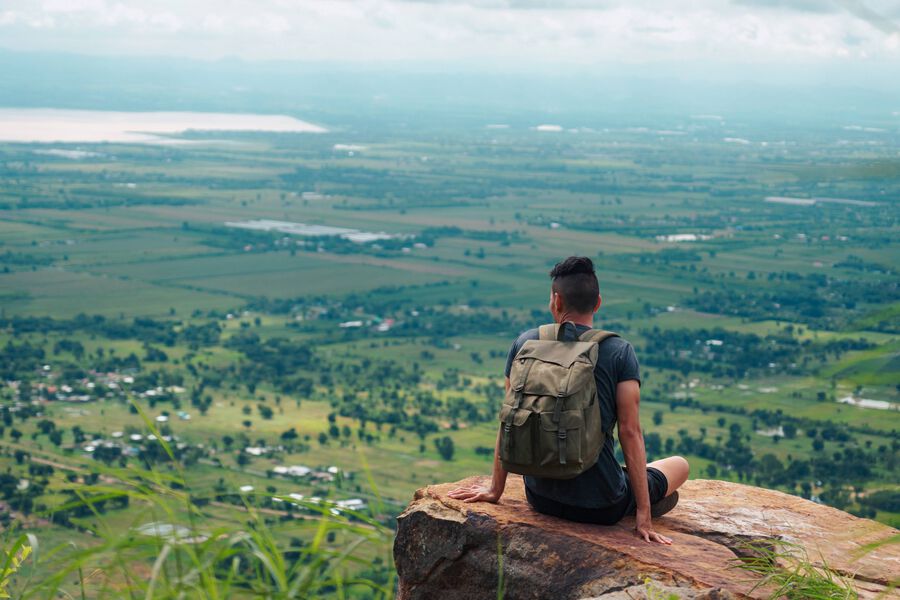
1 Comments
just wanna say thanks for the info. very comprehensive and impressive. alot has gone into this